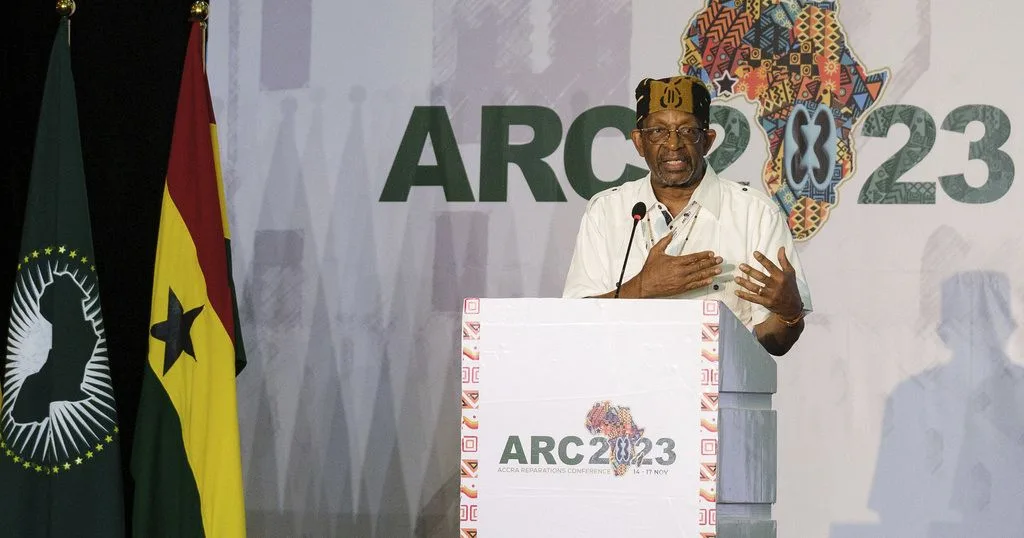
At a reparations summit in Ghana, delegates agreed Thursday to establish a Global Reparations Fund to seek compensation owed to millions of Africans enslaved centuries ago during the transatlantic slave trade.
The Accra conference on reparations adds to growing demands for reparations after an estimated 12 million Africans were forcibly removed by European nations between the 16th and 19th centuries and enslaved on plantations that made it possible to create wealth at the cost of poverty.
Centuries after the end of the slave trade, people of African descent worldwide continue to face systemic racial discrimination and racist attacks, a recent report from a special United Nations forum concludes which supports reparations as a “cornerstone of justice in the 21st century”.
“It is time that Africa, whose sons and daughters had their freedoms controlled and were sold into slavery, also received reparations,” Ghana’s President, Nana Addo Akufo-Addo, told the conference. , attended by senior government officials from across Africa as well as the diaspora community.
Slave reparations have become an issue that the world “must confront and can no longer ignore ,” Mr. Akufo-Addo said, denouncing the British and other European countries for enriching themselves during the slave trade while “enslaved Africans did not receive a cent” .
Delegates at the Accra conference did not specify how such a reparations fund would work. But Gnaka Lagoke, assistant professor of history and Pan-African studies, said it should be used to “correct the problems” the continent faces in all sectors of its economy.
The compensation is based on “the moral and legal rights and dignity of the people,” said Ambassador Amr Aljowailey, strategic advisor to the vice-chairperson of the African Union Commission, who read the resolution titled “Proclamation of ‘Accra’.
In addition to the Global Reparations Fund, which will be supported by an expert committee established by the AU Commission in collaboration with African nations, ” a special envoy will engage in campaigns as well as litigation and legal efforts,” Mr. Aljowailey said.
Activists said reparations should go beyond direct financial payments and also include development assistance to countries, restitution of colonized resources, and systemic correction of oppressive policies and laws.
The amount of compensation will be determined in a “negotiated settlement (that) will benefit the masses,” said Nkechi Taifa, director of the US-based Reparation Education Project.

